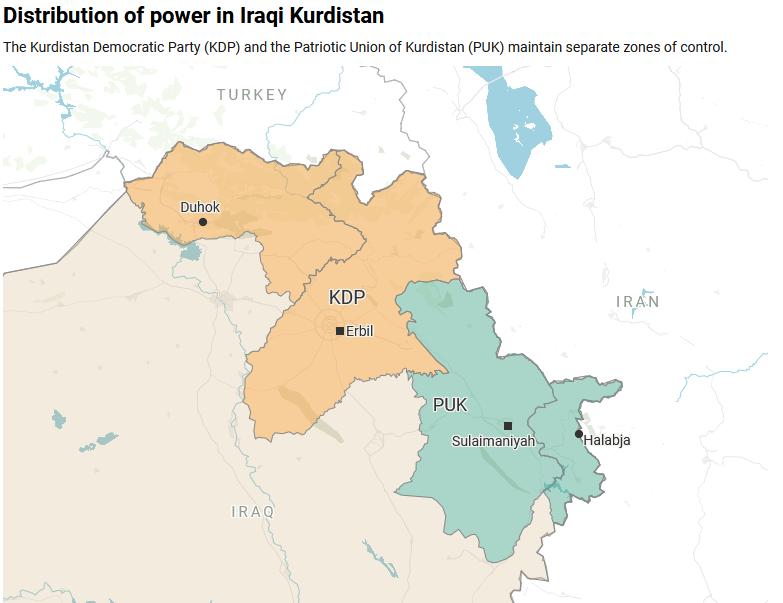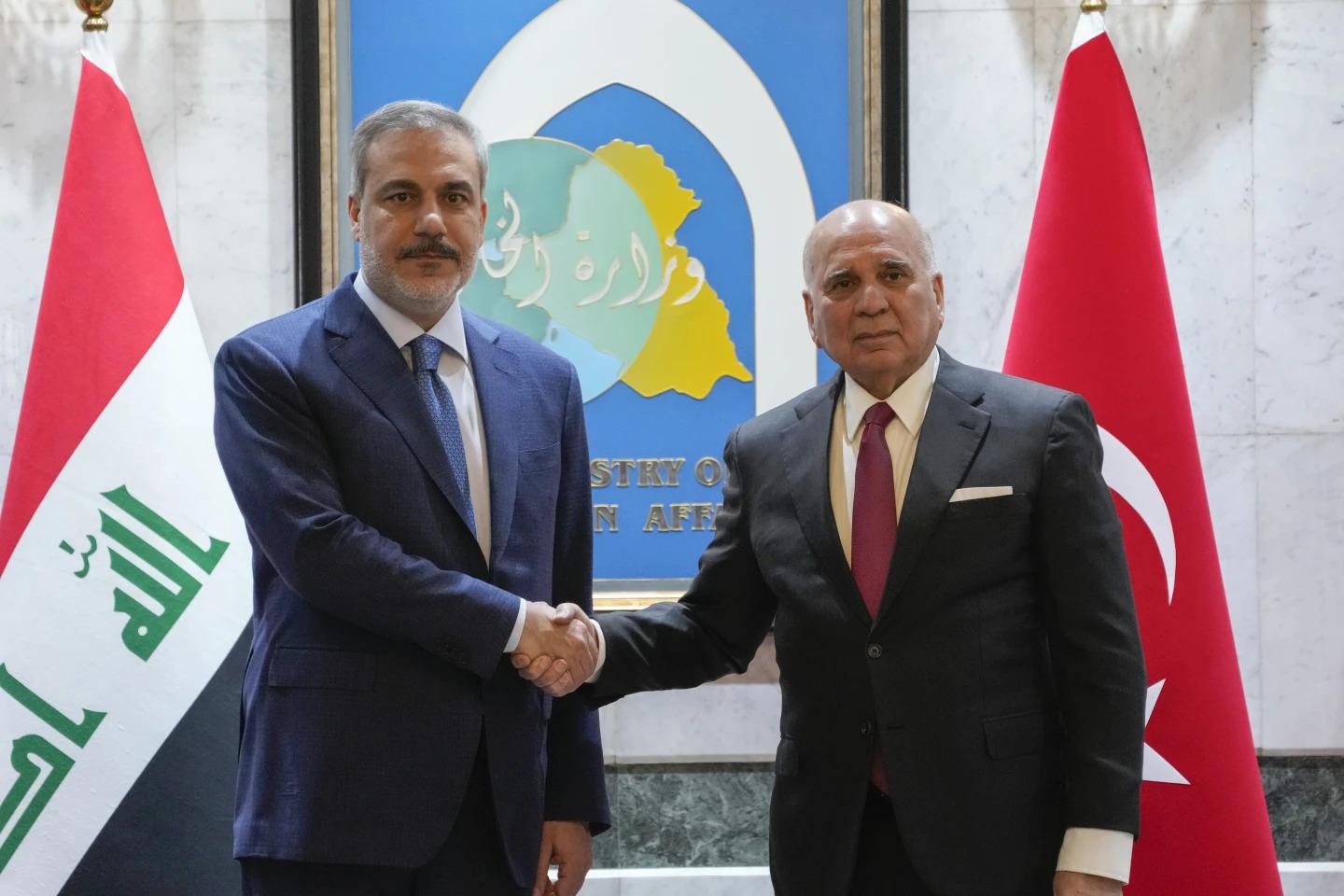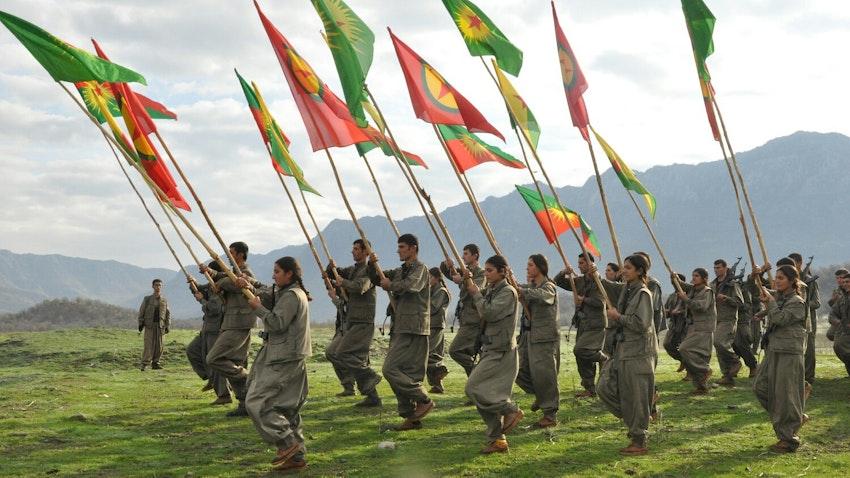Iraq-Türkiye security agreement and regional stability Partners in trouble
On March 20, Türkiye carried out a new round of airstrikes targeting Kurdish militants in neighbouring Iraq hours after a Turkish soldier was killed and four others were wounded in an attack in the region. In the last decade, Türkiye frequently carried out air strikes and conducted military operations in northern Syria and Iraqi territories against the Kurdistan Workers’ Party (PKK) and its affiliations based in these territories.
The PKK, which is listed as a terrorist organization by Türkiye, the United States, and the European Union, is based in the semi-autonomous Kurdistan region of northern Iraq, an area where Türkiye frequently conducts airstrikes and maintains military outposts.
The conflict was long fought mainly in rural areas of southeastern Turkey but is now more focused on the mountains of northern Iraq’s semi-autonomous Kurdistan region, where PKK militants are based.
The Turkish warplanes struck suspected PKK positions in the Metina, Zap, Hakurk, Gara, and Qandil regions in northern Iraq's autonomous Kurdish region, according to a ministry statement. The jets reportedly destroyed 27 PKK targets, including caves, bunkers, and shelters. There was no immediate comment from the PKK.

Ankara's firm stance and frequent military operations in border areas with Iraq have long been a delicate issue in bilateral relations between Iraq and Türkiye. As such, official Baghdad urged Ankara to abstain from its military operations and air strikes on its soil without the Iraqi government’s consent, though unsuccessfully.
Nevertheless, both states maintained a certain level of regional partnership in energy, logistics, and economic fields, enabling them to avoid a significant confrontation. However, the Iraqi government avoided designating the PKK as a terrorist organization for years, thus complicating the relations with Türkiye.
In line with it, amid Turkish Foreign Minister Hakan Fidan’s visit to Baghdad, Türkiye announced plans to conduct large-scale military operations in northern Iraq to quell the PKK threat and establish a buffer zone in the border areas.

Unsurprisingly, the agenda of Fidan’s visit was topped by cooperation in the fields of military, security, and counter-terrorism. Indeed, Ankara's plans regarding new military operations raised concerns in Iraq and among the PKK due to the potential impact and consequences for regional stability.
Shortly after the face-to-face meeting, the Iraqi government issued a statement banning the PKK on its soil and labelling it as a terrorist organization. In a joint statement, Ankara welcomed the decision taken by the Iraqi National Security Council that the PKK is a banned organization. The two sides also discussed preparations for a planned visit by President Tayyip Erdogan to Baghdad, which is expected to take place in April 2024.
Baghdad's agreement to join forces with Ankara against the PKK for the first time represents a turning point. Both Iraq and Ankara have many reasons to limit the spread of the PKK and counter its activities in Iraq.
One of Ankara's motives is to achieve a final victory over the organization in coordination with the Baghdad and Erbil governments. Notably, Iraq’s decision to label the PKK as a terrorist organization will restrict the PKK's ability to move across the Iraqi border freely, disrupt its supply lines, and limit its capacity to launch attacks from Iraqi territory.

Interestingly, Iran and its proxy forces also supported Baghdad's decision regarding the PKK and Kurdish separatism in Iran’s western provinces populated by ethnic Kurds. Therefore, the recent Ankara-Baghdad agreement on the PKK received Tehran’s muted support.
However, many wondered why Iran has agreed to eliminate the PKK in Iraq, especially since the party's activity has since 2016 been connected to pro-Iran factions along Tehran's strategic route that stretches to Damascus and Beirut.
With Baghdad and Ankara reaching a consensus, hopes for regional peace and stability raised significantly amid the ongoing Israel-Gaza war. Some sceptics even argued that Ankara’s willingness to reach a consensus with Baghdad and neutralize PKK might be attributed to its plans to switch focus to the Israel-Hamas war. However, the Turkish authorities dismissed such allegations, citing national security concerns.








